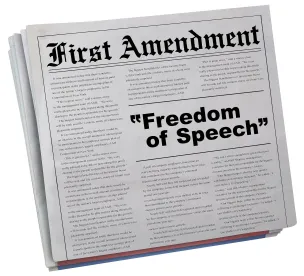On June 30, 2023, the U.S. Supreme Court in 303 Creative, LLC v. Elenis held that the First Amendment prohibits Colorado from compelling a website designer to engage in expressive conduct that conflicts with her beliefs.
Background
Colorado’s Anti-Discrimination Act (CADA) prohibits all public accommodations from denying “the full and equal enjoyment” of its goods and services to any customer based on numerous protected characteristics, including sexual orientation.
Lorie Smith is the owner of 303 Creative LLC, a Colorado-based web and graphic design business. Smith wanted to expand her services to include wedding websites, but was concerned that the CADA would compel her to create websites celebrating marriages she did not endorse, such as same-sex marriages.
Smith filed a lawsuit seeking an injunction to prevent the State from compelling her to create websites that ran counter to her belief that marriage should be between a man and a woman. The District Court denied Smith’s request for an injunction, and the Tenth Circuit affirmed.
Opinion
In a 6-3 decision, the Supreme Court reversed. The Court first focused on the foundational principles underlying the Free Speech Clause of the First Amendment, stating that “freedom to think and speak is among our inalienable human rights” and “indispensable to the discovery and spread of political truth.” The Court also cited several of its precedents where the First Amendment protected an individual’s right to free speech “regardless of whether the government considers his speech sensible and well intentioned or deeply ‘misguided’.”
The Court then relied heavily on the parties’ stipulated facts to conclude that the wedding websites Smith sought to create qualified as “pure speech.” Specifically, the parties stipulated that the websites promised to contain modes of expression; that every website will be Smith’s original, customized creation; and that Smith will create these websites to communicate ideas – namely, to celebrate and promote what Smith understood to be a true marriage. Since the parties stipulated that Smith was willing to work with all individuals, regardless of sexual orientation, the Court explained that this case was about expression, not access to public accommodations.
Since Smith’s wedding websites were expressions of speech protected by the First Amendment, the Court applied the “strict scrutiny” test. Specifically, the State had to show that forcing Smith to create speech would serve a compelling government interest and that no less restrictive alternative existed to secure that interest. The Court ultimately held that Colorado failed to meet that standard. While the Court recognized that states had a “compelling interest” in eliminating discrimination, it stated that public accommodation statutes swept “too broadly” when deployed to compel speech.
Dissent
In dissent, Justices Sotomayor, Kagan, and Jackson argued that the CADA targeted conduct, not speech, and that the act of discrimination has never constituted protected expression under the First Amendment. The dissent called “[t]he Court’s decision, which conflates denial of service and protected expression…a grave error.”
The dissent also argued that the law was narrowly tailored to achieve the compelling state interest in eliminating discrimination, as the law “responds precisely to the substantive problem which legitimately concerns the State: the harm from status-based discrimination in the public marketplace.”
The dissent further emphasized that “[a] public accommodations law does not force anyone to start a business, or to hold out the business’s goods or services to the public at large. The law also does not compel any business to sell any particular good or service. But if a business chooses to profit from the public market, which is established and maintained by the state, the state may require the business to abide by a legal norm of nondiscrimination.”
Since the law did not abridge Smith’s freedom of speech in any meaningful sense, and was unrelated to the suppression of expression, the dissent argued that the law was subject to lesser constitutional scrutiny. Specifically, the standard was satisfied if it promoted a substantial government interest that would be achieved less effectively absent the regulation – a standard which the dissent argued was easily met here.
Impact on Employers
The Supreme Court ruling creates uncertainty in the enforceability of public accommodation laws in many states, especially where the services may be characterized as expressive. As the Court observed, “determining what qualifies as expressive activity protected by the First Amendment can sometimes raise difficult questions.” However, since the parties in 303 Creative specifically stipulated that Smith sought to engage in “expressive” activity, the Court did not tackle the difficult question of what constitutes sufficiently “expressive” conduct. The holding in 303 Creative was also limited to the specific facts stipulated by the parties, so the ruling may not have a significant impact on employers’ day-to-day practices. State public accommodation laws remain largely in effect, and employers should continue to comply with all applicable non-discrimination and non-harassment laws.





 />i
/>i

